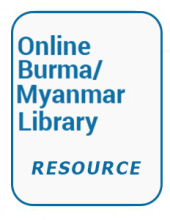Land Library Search
Through our robust search engine, you can search for any item of the over 73,000 highly curated resources in the Land Library.
If you would like to find an overview of what is possible, feel free to peruse the Search Guide.
/ library resources
Showing items 1 through 9 of 26.Flooding is a routine occurrence throughout much of the monsoonal tropics.
Land restitution carries implicit recognition of some previous claim to ownership, but when are first claims recognized? The concepts of first possession and original acquisition have long been used as entry points to Western concepts of property.
Mainland Southeast Asia (MSA) has seen sweeping upland land use changes in the past decades, with transition from primarily subsistence shifting cultivation to annual commodity cropping. This transition holds implications for local upland communities and ecosystems.
Reducing emissions from deforestation and forest degradation (REDD+) is viewed as an effective way to mitigate climate change by compensating stewards of forested areas for minimizing forestland conversion and protecting forest services.
Cambodia has become a principal target of transnational (and domestic) land grabs over the past decade, mostly in the form of economic land concessions (ELCs). The northeastern part of the country—where the majority of Cambodia’s indigenous people reside—is a particular hotspot.
Abstract: "Global economic change and policy interventions
are driving transitions from long-fallow swidden (LFS)
systems to alternative land uses in Southeast Asia’s uplands.
This study presents a systematic review of how these
... In December 2015, representatives of governments, civil society organizations, Indigenous Peoples’ groups, and the private sector met in Paris for the 21st
Conference of Parties (COP 21) of the United Nations
CONCLUSION:
"A developing country like Lao PDR is struggling to gain recognition from other countries
in the world. This requires that the country applies a human rights perspective to
governance of land. In this case the land rights are the rights of the ethnic groups in the
EXECUTIVE SUMMARY: "In recent years, many governments globally have formally recognized community land and natural resource tenure, either based on existing customary practices or more recently established land governance arrangements.1 These tenure arrangements have been called by a variety of n






